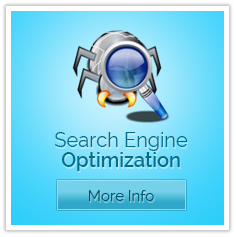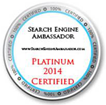sales@webseopros.com
Panda Versus Penguin
The Titanic’s Of Algorithm Updates For 2011 And 2012
During 2011 and through 2012 the biggest Google updates to their algorithm that decides organic placement of websites continue to change and scare website owners and SEO’s alike. To some it seems hard to overcome the challenges these two algorithm changes create and some have found it stressful and hard to overcome. I speak all over the country at many industry shows and I open my forums up for questions. The number one questions from business owners and their marketing persons are what do I need to do to fix my website to get it back to where it used to be in the search engine indexes.
Google has made it no secret what you need to do to stay up at the top and if you follow Google’s own Webmaster Guidelines you won’t be hurt by any of these updates. If you are affected, understanding the reasons behind each update, helps to know how to fix your website if it is affected by Panda or Penguin or their updates.
The Panda Update
The Panda Algorithm and its many updates main goal is to get great content and get website owners to renew their content so it is fresh and rich. A second goal in the Panda update is to make sure that duplicate or similar content doesn’t exist anywhere else on the Internet. Part of what Google has had to deal with is people who visit their search engine not trusting the results they get.
Imagine you are driving in a car and you are going to a store to buy something. When you get there, you push on the door and notice the door is locked. You look through the window and you see nothing but trash on the ground because the company has gone out of business.
On the Internet, how do you know if a business has gone out of business? You may be buying something from a website that can still collect money but there is no one there to ship you what you ordered. It is a trust issue. Google wants to know you are still in business. It does this in a multitude of ways. First by knowing you recently refreshed or updated content on your website and an updated copyright tag with the year your company was established and the current year is just a start.
Copyright 2001-2012 (Make sure this is on your homepage.)
Next Google has proven it got smarter and wants to make sure your content is unique and not found somewhere else on the Internet. Google wants to make sure you know that you are not doing yourself any favors stealing someone else’s content and putting it on your own website. Google will degrade the ranking or placement of both websites. A good way to check if you have copied or similar content from the Internet is o check your URL’s at www.CopyScape.com.
The Penguin Update
The Penguin update has a totally different focus. It targets those who try to pull the wool over on Google. If you have ever heard of “Black Hat” techniques for getting up on Google you know that those are techniques that violate Google’s Webmaster Guidelines including those that try to SPAM Google. This can be many things including keyword stuffing, hidden text, cloaking, links SPAM, and much more.
Google has stopped checking for many items from their algorithms that Google virtually outlawed over the years. These items when they were checked for heavily were consider “Black Hat SEO tactics”. Previously using those techniques could easily get you banned from Google and people stopped using them. Over time Google removed checking for some of those techniques in their algorithms most likely to concern processing power.
Overtime, some people realized by accident or by research that using these technique again actually helped their position on Google and there was virtually never a penalty. Word got around and people started using these techniques in huge number and probably praying this day would never come. The day when Google put the penalties back in their algorithm.
Keyword Stuffing
Keyword stuffing was one of the original optimization tactics and one of the first for Google to penalize. You want to put words on your websites pages that you want to be found for, however, when you put it 25 times in a row you get in trouble. In fact now when it is more than a few times in a row you can garner a penalty. As a rule you should never place the same text on a page more than once.
Hiding Text
There are several ways to hide text such as making hidden text by making it the same color as the background, making text to small, covering text with a picture using DIV tags, hiding text with Cascading Style Sheets (CSS), and many more. Those are just examples of the most common ways.
Google and other search engines don’t like anything hidden on a webpage. Their crawlers want to see everything that a visitor sees. When a website owner places content just for the search engines, they’re often going to extremes.
The general rule to avoid a penalty with the Penguin Update is to never hide text, whether by using styles, fonts, display:none tagging or any other means that means a typical user can’t see it.
Cloaking
Cloaking is just sophisticated hiding. There are many ways to make the website How about rigging your site so that search engines are shown a completely different version than what the human visitors see?
That’s called cloaking. Search engines really don’t like it. It’s one of the worst things you could do. While most people are unlikely to accidentally spam a search engine, the opposite is true when it comes to cloaking and Google gives a nice hefty penalty when you’re caught doing it.
Unnatural Link Building
Tempted to run around and drop your links on forums and blogs all over the web, perhaps with the help of automated software? Don’t do it and next, don’t make your link building consistent. What do I mean by this? Say for example, you have a budget of $1,000 per month and you pay someone to build 50 articles with links per month creating a set amount of links each week or each month. When Google looks at your link growth, what they’ll notice is that your link count is growing by the same number each month.
This type of is link growth is absolutely unnatural, particularly if you’re buying all the links from the same source. It’s easy for Google to notice this type of paid link building because Google is smart. Don’t make it easy for Google to find a pattern in your link building.
Paid Links
These are links you pay for on a website or you pay someone to make for you. If you haven’t heard the national news stories of JCPenney’s or Overstock.com getting blacklisted for buying links you need to visit the NewYorkTimes.com and WallStreetJournal.com and read.
If you choose to ignore Google’s Webmaster Policies and by links from overseas or pay to be on highly ranked sites which you are not contributing to or our in your own industry, be prepared for a quick death of your website in the search rankings. Buying these links will help you temporarily but when you are caught you will suffer. Don’t believe these paid link websites when they say they’re undetectable. They’re not.
NOTE: Bing, officially doesn’t ban for paid links, but it frowns upon such purchases.
Exact Match Anchor Text On Links
Stop building exact match anchor links. It is now one of the biggest red flags to unprofessional SEO. If you are a plumber in Tampa and all your links say “Tampa Plumber” and link to your homepage, Google will eventually punish you. It’s just not natural to have links that are an exact match anchor text to your website. You should be diversifying the anchor texts, focusing more on links that mention your brand name and less on links that mention have just your keywords in them.








